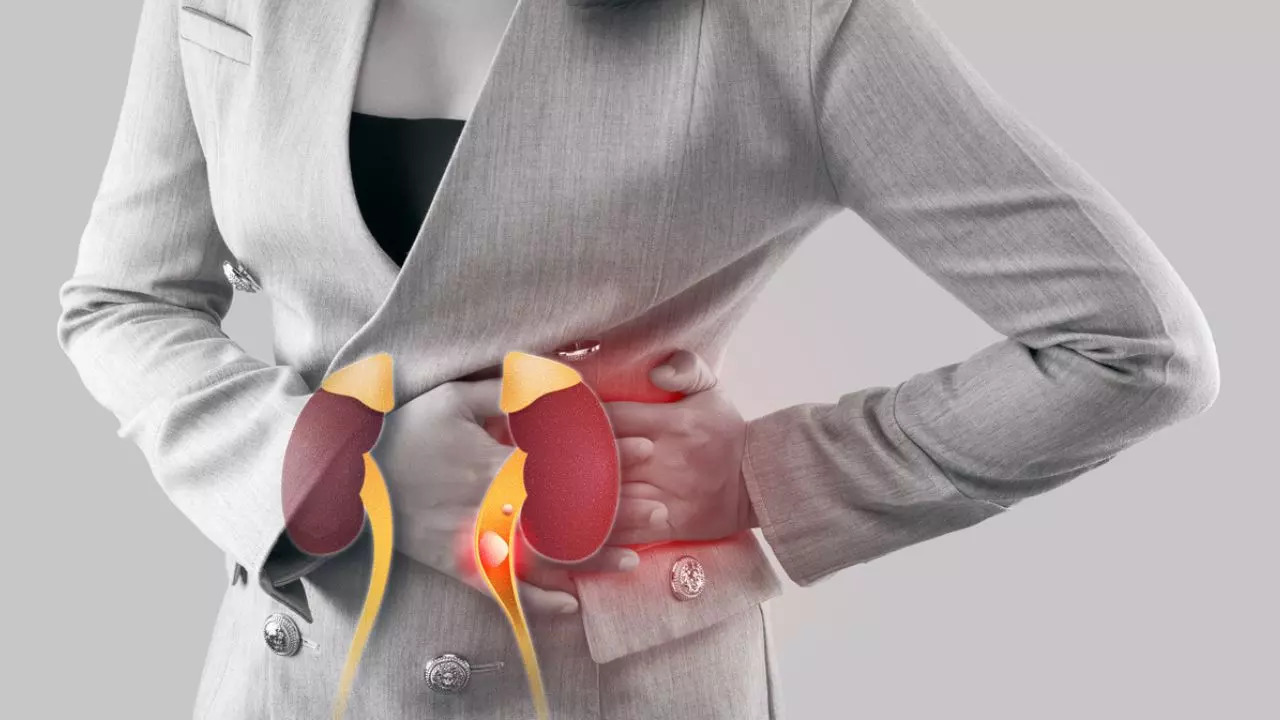Can drinking less water in winter cause kidney stones? (Image: iStock)
As temperatures drop, so does our thirst—a seemingly harmless change that could be setting the stage for a painful health crisis. Recent studies have shown that reduced water consumption during the winter months may be contributing to an increase in kidney stone cases, with some regions reporting up to a 30% increase in diagnoses during the colder season. We spoke to Dr PS Vali, Chief Nephrologist and Senior Consultant, AINU, Dilsukhnagar, Hyderabad, about the same.
He explained how urologists and nephrologists across the country are sounding the alarm about this often overlooked winter health risk. “Medical experts warn that not enough water in the body can concentrate urine, causing the buildup of unwanted substances and minerals that lead to the formation of kidney stones,” he said.
This winter-related dehydration isn’t just uncomfortable: it’s dangerous. Kidney stones affect 1 in 10 people during their lifetime, and more than half a million Americans seek emergency treatment annually. The pain of passing a kidney stone has been linked to childbirth, so prevention is crucial. The link between seasonal changes and kidney health is not new.
Research published in the National Library of Medicine revealed that urine calcium levels are significantly higher in the winter months for both men and women, increasing the risk of stone formation. This seasonal variation suggests that our bodies may require different hydration strategies throughout the year.
Interestingly, kidney stone treatment has a rich history dating back to ancient times. In the year 600 BC. C., Sushruta, the chief physician to the king of India, first reported removing stones through the urethra using a splint.
This early medical breakthrough paved the way for modern treatments, highlighting the long-standing battle against this painful condition.
How to prevent kidney stones?
Health professionals recommend drinking at least 2 liters (8 cups) of water daily, increasing to 3 liters (12 cups) for those with a history of kidney stones. This simple habit can dramatically reduce the risk of stone formation by diluting your urine and removing potential crystal-forming minerals.
Beyond hydration, small changes in diet can make a big difference. Surprisingly, foods rich in calcium are recommended as they bind to oxalates in the intestine, reducing the risk of calcium oxalate stone formation, the most common type. Additionally, increasing magnesium and citrate intake can inhibit stone formation; Potassium citrate is often prescribed to increase citrate levels in the urine and reduce stone formation rates4. While we bundle up against the winter cold, let’s not forget to hydrate. Good hydration could keep kidney stones and the kidney specialist away.
Disclaimer:
The information contained in this post is for general information purposes only. We make no representations or warranties of any kind, express or implied, about the completeness, accuracy, reliability, suitability or availability with respect to the website or the information, products, services, or related graphics contained on the post for any purpose.
We respect the intellectual property rights of content creators. If you are the owner of any material featured on our website and have concerns about its use, please contact us. We are committed to addressing any copyright issues promptly and will remove any material within 2 days of receiving a request from the rightful owner.

